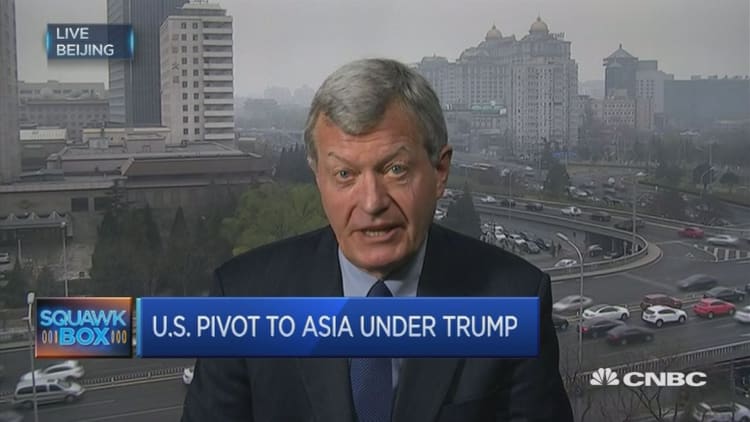
President Donald Trump will need "creative diplomacy" to resolve the issue of North Korea's nuclear aggression, warned former U.S. Ambassador to China Max Baucus.
Beijing, a long-term ally to Pyongyang, is a key player in this situation, so Chinese engagement remains a crucial tool at Washington's disposal, Baucus, a Democract who served under President Barack Obama, told CNBC on Monday.
While Beijing has helped on international sanctions, mainland officials haven't gone as far as they can to curb Pyongyang's nuclear ambitions for fear of risking instability on the Korean Peninsula, Baucus said.
"If the Peninsula becomes unstable and (North Korean leader) Kim Jong-un goes, South Korea will take control and become another country on China's doorstep under U.S. influence."
But if Trump plays his cards right, he can convince Chinese President Xi Jinping to do more, Baucus said.
"China wants to maintain the status quo for as long they can, until they're forced not to. That's the opportunity that we, the U.S., have, to show that they cannot maintain that status quo much longer."
Baucus also stressed how important it was for Washington to take charge on this matter.
"Only the U.S. can lead here. South Korea can't figure out a solution — they're too small — and Japan's not in a good position. China doesn't want to, so it's up to us."
But he highlighted that Washington could not act unilaterally, warning that any decision taken must be in concert with its Asian allies or else risk "unintended consequences."

